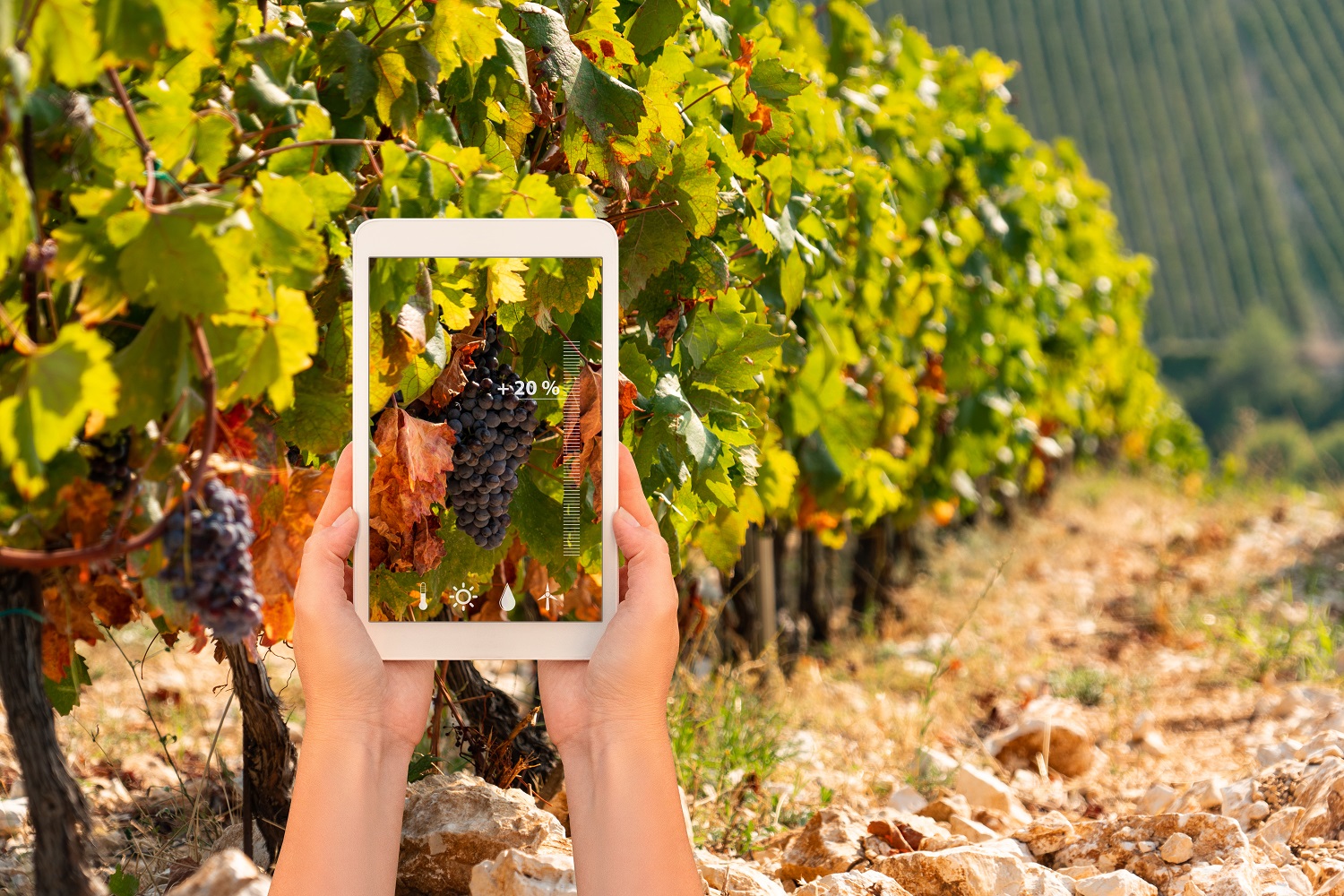Professionalizing Knowledge Transfer Processes Unit
Digital Agriculture in Germany: a Look into the Future
What can be done today to ensure that the digital transformation contributes to a sustainable and efficient agriculture? To answer this question, the EXPRESS team has developed a visionary concept of the future, which was examined and validated from various perspectives as part of Digital Day 2020.
In view of today's demands on an agriculture of the future, one can get dizzy. Limited resources and environmental damage caused by intensive farming require the introduction of sustainable cultivation methods. With the growth of prosperity and population worldwide, the demand for high-quality agricultural products is also increasing. While high operating costs and low producer prices in Germany have led to a drastic decline in agricultural operations, climate change is changing the fundamental conditions under which plants are bred, cultivated and harvested.
In order to be able to act purposefully in such a complex environment, a clear idea of what a desirable future might look like is required. The EXPRESS project team developed such a concept of the future for the cultivation of special crops in Central Germany in a digital workshop on May 8, 2020. The concept of the future is part of a systematic knowledge transfer strategy being carried out by researchers of the group Professionalization of Knowledge Transfer Processes at Fraunhofer IMW.
The foundation for the concept of the future were the condensed results of the vision workshop held in autumn 2019, findings from expert discussions with farmers in spring 2020 and contextual information from scientific literature. The focus was on the question of what role digital technologies could play in realizing the visionary concept of the future.
Digital Day 2020: Digital dialogue "Future of Agriculture
In the context of the Digital Day on 19 June 2020, this concept of the future was then discussed and evaluated by participants from various disciplines. A total of 19 participants enriched the Digital Dialogue under the title "Future of Agriculture" with their expertise in various fields.
Moderated by Juliane Welz and Valentin Knitsch from the Fraunhofer IMW, a series of interactive formats enabled an intensive exchange. In addition to technical explanations of the project focuses on water stress, virtual reality and regionality, the discussion also focused on the question of what financial hurdles exist for smaller companies when it comes to digitization. According to Hannes Mollenhauer from the Helmholtz Centre for Environmental Research GmbH - UFZ:
"There are actually possibilities and potentials for every target group. You don't need a lot of sensor technology to carry out dry stress modelling in principle. So I see possibilities to implement solutions even with few resources. Accordingly, it is possible to get started relatively quickly. Of course, it depends on the degree of detail in which such measurements should be possible."
The lively discussions provided the participants with a whole series of insightful experiences. Just how central the topic of digital agriculture currently is in Germany became clear from the fact that the "Digital for All" initiative had already declared the Digital Dialogue "Future of Agriculture" one of seven highlight actions in the category "Society and Environment" in the run-up to the Digital Day.
Digital Agricultural Technology Requires a Holistic Approach
It became clear during the discussions that a holistic view of different areas is essential for digitization in agriculture. This refers on the one hand to the involvement of all stakeholders, their possibilities and needs. Thus, farms are called upon to develop digital skills and to take responsibility for the introduction of sustainable farming methods. However, they cannot bring about the desired change on their own, as the framework for the necessary transformations is set by politics. In the visionary concept of the future, the need for a new agricultural digital law was therefore explicitly pointed out. In addition, Tino Hutschenreuther from the IMMS Institut für Mikroelektronik- und Mechatronik-Systeme gemeinnützige GmbH also commented on the technical hurdles of digital solutions in plant cultivation:
"What I believe is important is not to leave the farmer alone with the flood of solutions. He shouldn't have to worry about technology. He should have to concern himself with technical matters as little as possible."
In addition, production chains and processes must also be viewed holistically in order to create meaningful evaluation systems for sustainable crop production and to introduce them across the board. This goes far beyond looking at the situation in isolation: according to the concept of the future, an integrated view of production processes should increasingly be taken, including holistic but at the same time complex digital processes.
Strengthening Digital Competence through Systematic Knowledge Transfer
The fact that digital transformation itself is a holistic development and does not stop at any area of life was also reflected in the formats of the workshop and the digital dialogue. While the vision workshop in autumn 2019 still took place on the premises of the Fraunhofer IMW, the current restrictions on contact required a switch to digital channels this time. Participants communicated via video conferencing, worked on joint online documents on a virtual whiteboard and followed the progress made in real time on shared screens.
Building digital expertise is therefore not a challenge that agriculture alone faces. However, it is so important in agriculture precisely because it is so essential for shaping our future coexistence. The purpose of the systematic transfer of knowledge in EXPRESS is therefore to enable science and practice to enrich each other and share knowledge through targeted exchange. Following the development of the concept in the fall of 2019, the development and validation of the EXPRESS future concept now represents the second important milestone in the internal knowledge transfer strategy.
